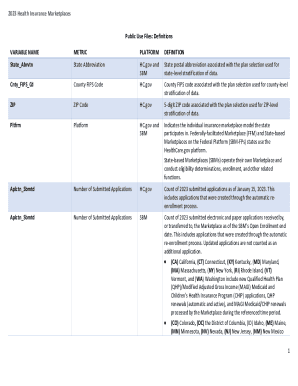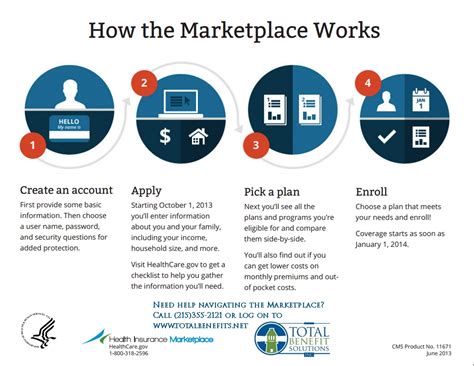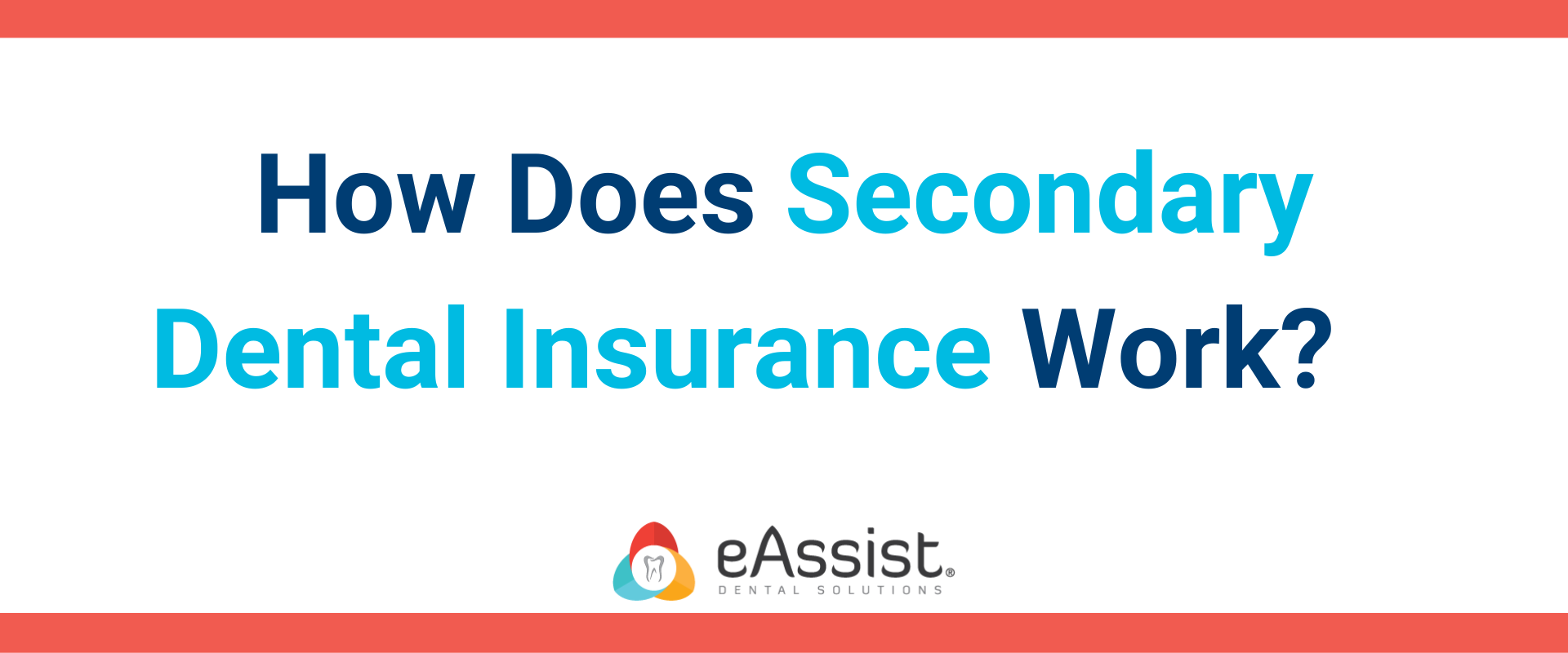Marketplace For Insurance

In the modern landscape of the insurance industry, a transformative shift is taking place, fueled by the emergence of digital marketplaces. These innovative platforms are revolutionizing the way consumers and businesses access and engage with insurance services, offering a level of convenience, transparency, and customization that was once unimaginable. With a focus on technology and user experience, these marketplaces are not just changing the insurance game; they are redefining it entirely.
This article delves into the depths of this transformative trend, exploring the genesis, mechanics, and profound impact of insurance marketplaces. We will uncover the intricate strategies, technological advancements, and consumer insights that are driving this revolution, and forecast the exciting future that lies ahead for the insurance industry.
Unlocking Accessibility and Convenience

Empowering Consumers with Digital Tools

At the heart of insurance marketplaces lies a fundamental shift in consumer empowerment. These platforms leverage the ubiquity of digital technologies to put the power of insurance comparison and acquisition directly into the hands of consumers. Through intuitive interfaces and advanced search functionalities, individuals can now effortlessly explore a vast array of insurance options, tailor policies to their unique needs, and make informed decisions with just a few clicks.
One notable example is the integration of AI-powered chatbots, which provide real-time assistance and personalized recommendations based on individual profiles and preferences. These chatbots not only streamline the process of policy selection but also enhance consumer understanding of often complex insurance products. As a result, consumers are better equipped to make choices that align with their specific risks and financial capabilities.
Streamlining the Insurance Acquisition Process
The traditional insurance acquisition journey, fraught with paperwork, manual processes, and lengthy wait times, is now a thing of the past thanks to insurance marketplaces. These platforms have seamlessly integrated digital technologies, automating much of the paperwork and streamlining the entire process. Consumers can now apply for, purchase, and manage their insurance policies entirely online, with minimal friction and maximum efficiency.
For instance, innovative marketplaces leverage electronic signature technologies, enabling consumers to sign policy documents digitally, eliminating the need for physical paperwork and significantly reducing processing times. Additionally, these platforms often employ robust data analytics and machine learning algorithms to streamline risk assessment and underwriting processes, resulting in faster policy approvals and improved customer satisfaction.
Fostering Transparency and Trust
Enhanced Price Comparison and Transparency

A key advantage of insurance marketplaces is their ability to promote price transparency and comparison shopping. By aggregating insurance offerings from multiple providers onto a single platform, consumers can easily compare prices, coverage options, and additional benefits across different policies. This level of transparency not only empowers consumers to make more informed choices but also fosters a competitive environment that drives insurers to offer more attractive rates and benefits.
Moreover, insurance marketplaces often employ advanced price comparison tools that factor in not just the basic policy price but also additional costs, such as deductibles and riders. These tools provide a comprehensive view of the total cost of ownership, helping consumers make more accurate comparisons and select policies that best fit their budget and needs.
Building Trust through User Reviews and Ratings
In the digital age, consumer trust is largely influenced by peer reviews and ratings. Insurance marketplaces recognize this and have incorporated user-generated content, such as reviews, ratings, and testimonials, to build trust and confidence among consumers. These platforms provide a space for policyholders to share their experiences, both positive and negative, with specific insurance providers and policies, offering valuable insights to prospective buyers.
Furthermore, insurance marketplaces often employ sophisticated algorithms to analyze and highlight the most relevant and trustworthy reviews, ensuring that consumers receive accurate and reliable information. This not only enhances the overall user experience but also fosters a culture of transparency and accountability among insurance providers, further strengthening consumer trust in the marketplace.
Nurturing Consumer Engagement and Retention
Personalized Recommendations and Upselling
Insurance marketplaces excel at leveraging data-driven insights to deliver personalized recommendations and upsell opportunities to their users. By analyzing consumer profiles, behavior patterns, and insurance needs, these platforms can suggest additional coverage options or policy upgrades that are tailored to individual circumstances. This level of personalization not only enhances the user experience but also increases the likelihood of policyholders expanding their coverage, leading to higher customer lifetime value.
For instance, if a policyholder has recently purchased a new car, the marketplace can automatically suggest adding comprehensive auto insurance coverage or increasing liability limits based on the vehicle’s value. Similarly, for homeowners, the platform might recommend additional coverage for natural disasters or liability protection for rental properties. These personalized recommendations demonstrate a deep understanding of the user’s needs, fostering loyalty and long-term engagement.
Seamless Policy Management and Renewal
Beyond the initial policy acquisition, insurance marketplaces offer seamless policy management and renewal processes. Consumers can conveniently access their policy documents, make payments, and track their coverage details through a single, user-friendly interface. The platform often sends timely reminders for policy renewals, ensuring that policyholders never miss an important deadline.
Additionally, insurance marketplaces often provide tools and resources to help policyholders understand and maximize their coverage. This could include interactive guides, FAQs, or even chatbots that offer real-time assistance, empowering consumers to make the most of their insurance policies and further enhancing their overall satisfaction and loyalty.
Technological Innovations Shaping the Marketplaces
AI and Machine Learning for Personalization and Risk Assessment
Artificial Intelligence (AI) and Machine Learning (ML) technologies are at the forefront of insurance marketplace innovations. These advanced technologies enable platforms to deliver highly personalized experiences, from recommendation engines that suggest tailored insurance products to chatbots that provide instant support and guidance. AI and ML also play a crucial role in streamlining risk assessment and underwriting processes, allowing for faster and more accurate policy approvals.
For example, AI-powered risk assessment models can analyze vast amounts of data, including consumer behavior, historical claims data, and external factors, to predict and assess risks more accurately. This not only improves the efficiency of the underwriting process but also enhances the overall user experience by reducing the time and effort required for policy acquisition.
Blockchain for Enhanced Security and Transparency
The integration of blockchain technology is another significant innovation in insurance marketplaces. Blockchain’s decentralized and secure nature offers enhanced security for sensitive data, such as personal information and policy details. Additionally, blockchain’s immutable ledger system ensures transparency and trust, as all transactions and interactions are recorded and verifiable, reducing the potential for fraud and errors.
Furthermore, blockchain’s smart contract capabilities can automate various processes within the insurance lifecycle, from policy issuance and claim management to fraud detection and dispute resolution. This not only streamlines operations but also enhances the overall user experience by providing faster, more efficient, and more secure insurance services.
The Future Outlook: Insurance Marketplaces and Beyond
Expanding Beyond Traditional Insurance Products
The success and potential of insurance marketplaces are not limited to traditional insurance products. These platforms are increasingly exploring opportunities to expand their offerings into new and innovative areas. From micro-insurance policies tailored for specific events or situations to specialized coverage for emerging technologies like autonomous vehicles or drone operations, insurance marketplaces are at the forefront of driving industry innovation and adapting to the changing risk landscape.
Additionally, the integration of parametric insurance, which triggers payouts based on predefined parameters rather than individual claims, is gaining traction. This type of insurance, often used for natural disasters or weather-related events, provides a faster and more efficient claims process, further enhancing the appeal and accessibility of insurance products through marketplaces.
Partnerships and Collaborations for Enhanced Services
To deliver a comprehensive and differentiated offering, insurance marketplaces are actively forging partnerships and collaborations with various stakeholders across the insurance ecosystem. These partnerships can include alliances with insurance providers to offer exclusive products or discounts, collaborations with technology companies to enhance platform capabilities and user experiences, and even partnerships with financial institutions to provide integrated financial planning and wealth management services alongside insurance offerings.
By leveraging these strategic partnerships, insurance marketplaces can offer a more holistic suite of services that cater to a wider range of consumer needs, further solidifying their position as a one-stop destination for all financial and risk management requirements.
Regulatory and Ethical Considerations
As insurance marketplaces continue to evolve and expand, they must also navigate a complex landscape of regulatory and ethical considerations. Ensuring compliance with evolving data privacy regulations, such as GDPR or CCPA, is critical to maintaining consumer trust and avoiding legal pitfalls. Additionally, the ethical use of consumer data, particularly in the context of AI-driven personalization and risk assessment, is a key area of focus to maintain fairness and transparency in the marketplace.
Moreover, insurance marketplaces must also address concerns related to algorithmic bias and ensure that their platforms provide equal opportunities and fair treatment to all consumers, regardless of their background or demographic profile. By actively engaging with regulators, industry bodies, and consumer advocates, insurance marketplaces can contribute to the development of robust frameworks that balance innovation with consumer protection, fostering a sustainable and trusted environment for all stakeholders.
Conclusion: A Transformative Journey Continues
The journey of insurance marketplaces is a testament to the transformative power of technology and innovation in the insurance industry. From empowering consumers with digital tools to fostering transparency and trust, and from nurturing engagement and retention to leveraging cutting-edge technologies, these platforms are reshaping the insurance landscape and setting new standards for accessibility, convenience, and consumer-centricity.
As we look to the future, the potential for insurance marketplaces to continue driving industry evolution and consumer empowerment is immense. With a focus on expanding offerings, forging strategic partnerships, and navigating regulatory and ethical challenges, insurance marketplaces are well-positioned to lead the way in delivering innovative, accessible, and trusted insurance solutions that meet the evolving needs of consumers and businesses alike.
| Industry Trend | Impact |
|---|---|
| Digital Marketplaces | Enhanced accessibility, convenience, and consumer empowerment. |
| AI and Machine Learning | Personalized experiences, efficient risk assessment, and streamlined operations. |
| Blockchain Technology | Enhanced security, transparency, and automation. |
| Expanding Product Offerings | Meeting diverse consumer needs and adapting to changing risk landscapes. |

How do insurance marketplaces benefit consumers?
+
Insurance marketplaces empower consumers by providing easy access to a wide range of insurance options, allowing for comprehensive price comparisons, and offering personalized recommendations based on individual needs. These platforms streamline the insurance acquisition process, making it more convenient and efficient for consumers.
What role do AI and Machine Learning play in insurance marketplaces?
+
AI and Machine Learning technologies are integral to insurance marketplaces, enabling personalized experiences, efficient risk assessment, and streamlined operations. These advanced technologies enhance the overall user experience and improve the accuracy and speed of policy acquisition.
How do insurance marketplaces contribute to transparency and trust in the industry?
+
Insurance marketplaces promote transparency by aggregating insurance offerings onto a single platform, allowing for easy price comparisons and fostering a competitive environment. Additionally, user-generated content, such as reviews and ratings, builds trust among consumers, providing valuable insights into insurance providers and policies.
What is the future outlook for insurance marketplaces?
+
The future of insurance marketplaces looks promising, with opportunities to expand beyond traditional insurance products, forge strategic partnerships, and navigate regulatory and ethical considerations. By adapting to changing consumer needs and technological advancements, insurance marketplaces are poised to continue driving industry evolution and consumer empowerment.



